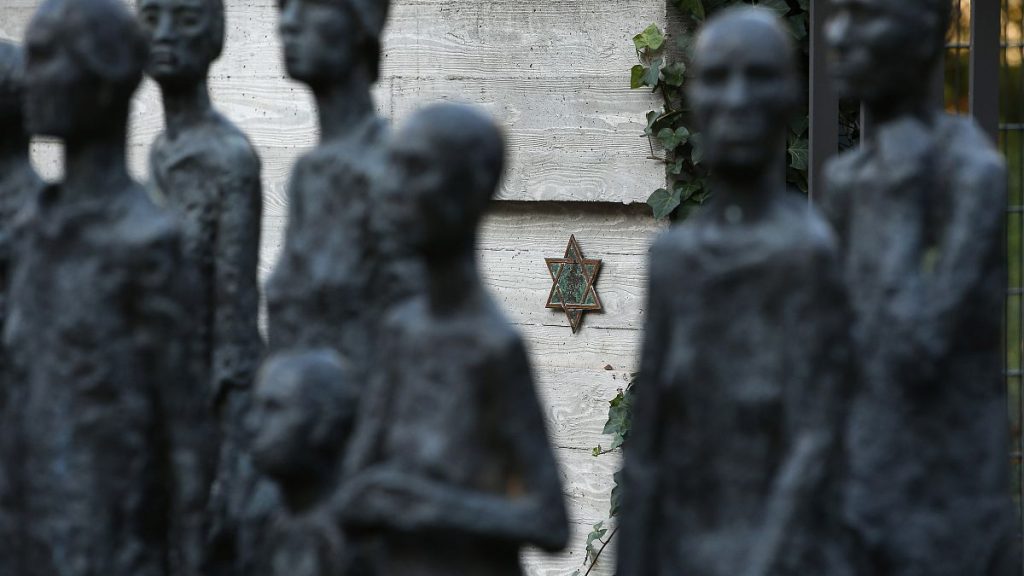International Holocaust Remembrance Day, observed annually on January 27th, serves as a solemn reminder of the atrocities committed against six million Jews and millions of other victims during the Holocaust. This year marks the 80th anniversary of the liberation of Auschwitz-Birkenau, the infamous concentration and extermination camp, a pivotal moment in history that underscores the devastating consequences of unchecked hatred and prejudice. However, despite decades of reflection and education, the somber occasion is marked by growing concern over the resurgence of antisemitism globally. Jewish communities worldwide are raising alarms about the increasing prevalence of antisemitic sentiments and acts, highlighting the urgent need for renewed efforts to combat this enduring form of discrimination.
The resurgence of antisemitism manifests in various forms, from overt acts of violence and vandalism to more subtle expressions of prejudice and discrimination. Sigmount Königsberg, the antisemitism commissioner in Berlin, characterizes antisemitism as a chameleon, adapting and evolving over time. He notes a significant deterioration in the safety and security of Jewish life in Germany, with even seemingly innocuous events like children’s puppet shows requiring police protection. Synagogues, once places of worship and community gathering, now resemble fortresses, with airport-style security measures becoming the norm. This stark reality underscores the pervasive fear and anxiety gripping Jewish communities in the face of escalating antisemitic threats.
Recent surveys paint a grim picture of the pervasiveness of antisemitic views. A study by the Anti-Defamation League found that a significant percentage of adults in Germany and worldwide harbor antisemitic beliefs. Königsberg emphasizes the multifaceted nature of the threat, with antisemitism emanating from various political and ideological extremes. He notes the disturbing phenomenon of otherwise opposing groups finding common ground in their shared hatred of Jews. This convergence of antisemitism from diverse sources creates a particularly hostile environment, pushing some individuals to conceal their Jewish identity out of fear for their safety.
The persistence of antisemitic myths and tropes further fuels the problem. Königsberg points to the use of “Zionist” as a coded substitute for “Jew,” perpetuating age-old prejudices under a new guise. Conspiracy theories, such as those targeting the Rothschild family, continue to circulate, demonstrating the resilience of antisemitic narratives. The German Interior Ministry reported a record high number of antisemitic attacks in 2024, with a notable surge following the 2023 Hamas attack on Israel and the subsequent conflict. Königsberg calls for an end to societal complacency, emphasizing the responsibility of all citizens to actively confront hatred and intolerance.
Social media platforms play a significant role in the spread and amplification of antisemitism. The scaling back of fact-checking efforts by major social media companies has created an environment where hate speech proliferates largely unchecked. The rapid dissemination of misinformation and disinformation, often targeting Jews, exacerbates existing prejudices and contributes to the polarization of society. Königsberg points to the pandemic as a prime example, with false narratives about Jews and COVID-19 spreading rapidly online. He argues that social media’s tendency to reduce complex issues to simplistic soundbites further fuels the problem, providing fertile ground for extremist ideologies to take root.
Extremist political parties, such as the Alternative for Germany (AfD), capitalize on the polarized climate and exploit existing prejudices for political gain. Königsberg criticizes the AfD for its inflammatory rhetoric and its use of provocation and scandal as political strategy. While the AfD represents a significant part of the problem, Königsberg argues that the broader political climate in Germany has become increasingly polarized and intolerant. Meaningful dialogue has been replaced by rigid adherence to pre-defined positions, hindering productive discourse and fostering animosity. He calls for greater tolerance and understanding, urging individuals to engage in respectful dialogue and consider perspectives different from their own. Combating antisemitism requires a multifaceted approach, including education, media reforms, and internet regulation. Königsberg acknowledges the immense challenge, describing it as a “Sisyphean task” requiring continuous and sustained effort. He stresses the importance of addressing antisemitism on an emotional level, challenging deeply ingrained prejudices and fostering empathy and understanding. The fight against antisemitism is a continuous struggle, demanding vigilance, education, and a collective commitment to building a more inclusive and tolerant society.














